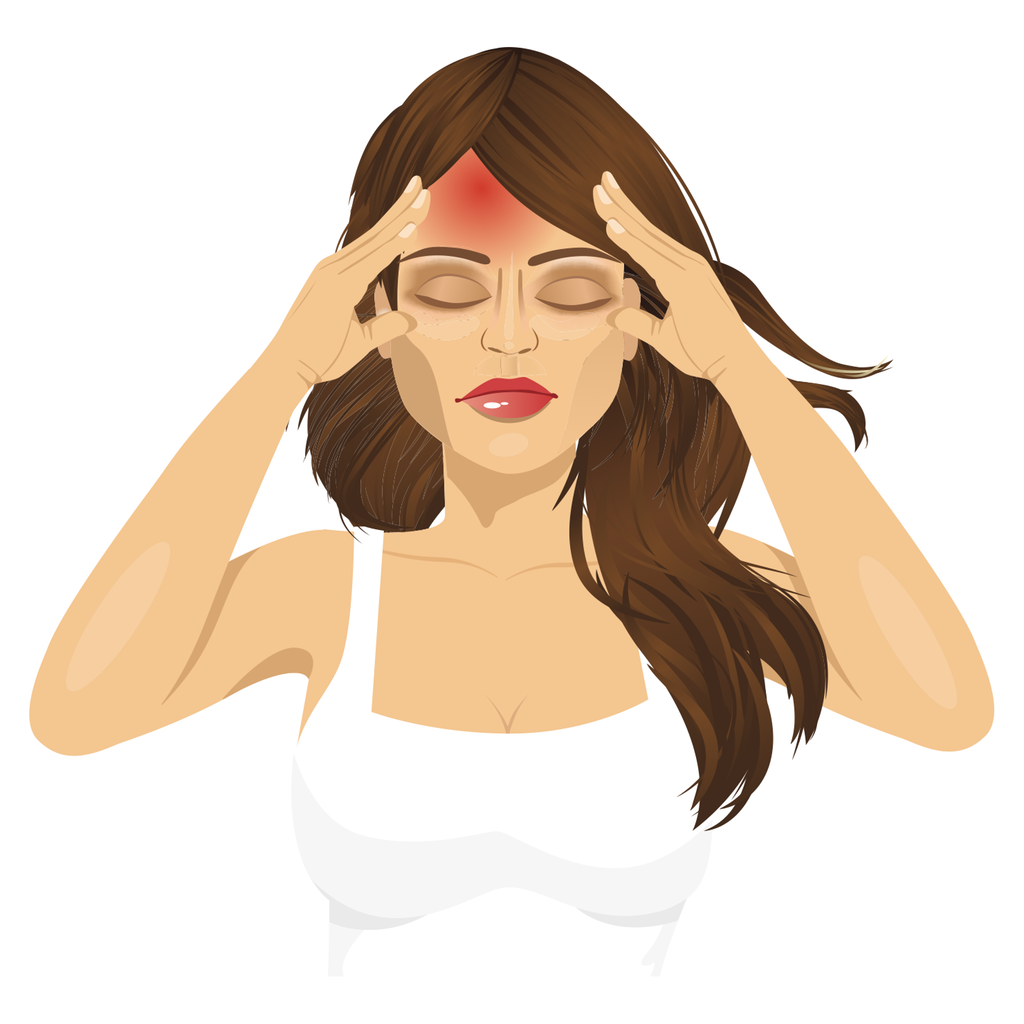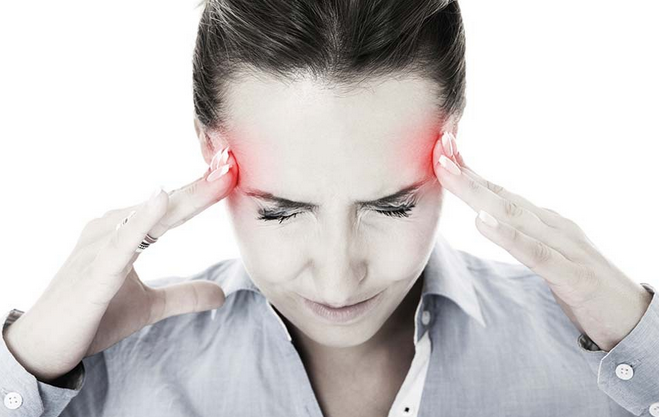How to get rid of chronic headaches? If you have been experiencing repeated episodes of headaches and are wondering how to relieve them, don’t lose hope because there are plenty of viable options available.
What is a chronic headache
A chronic daily headache is a headaches that is present for 15 days or more a month for about three months.
Why do I get headaches everyday
A daily headache causes are numerous and while some may be attributable to an underlying source, most chronic headaches have no known reason. According to MayoClinic, the predominant causes for chronic daily headaches may well include some or more of these:
Inflammation and blood vessels
Inflammation or disruptions of blood vessel in the region of the head due to stroke is one of the common causes of daily headaches. Alternatively, experts opine that when the intracranial blood vessels dilate and get inflamed, it invariably results in a throbbing pain. This is the predominant symptom associated with chronic headaches.
Brain tumor
When the cerebrospinal fluid flow in the brain is obstructed by the presence of a brain tumour, the outcome is a tension or migraine like headache. This headache may have a slow onset and then gradually increase in intensity over a period of three months.
Although, no diagnosis of a brain tumor can be made on the basis of a headache alone, observational studies indicate that 50% of brain tumor patients experience a chronic daily headache.
Traumatic brain injury
Traumatic brain injury is abbreviated as TBI. Experts believe that injury or trauma to the brain is associated with chronic headaches. This is attributable to the fact that small pockets of blood or fluid collection occur in the brain after an injury and causes these frequent headaches.
In recent years, microscopic examination has revealed disruption or damage to the nerve fibers in the brain, thus leading to persistent chronic headaches after an injury.
Medication and chronic headaches
Medication overuse is arguably yet another important cause of chronic headaches. This is not surprising considering that those with a history of episodic headaches may have used medications for instant relief very frequently.
Paradoxically, frequent use of pain killers can trigger off chronic headaches. Statistics indicate that 50 to 80% of people diagnosed with the condition, give a history of having taken pain killers in the past.
How to get rid of chronic headaches naturally and quickly
Although, medications like non steroidal anti inflammatory drugs and beta blockers have been used with varying degrees of success for control of acute episodes of headaches, caution needs to be maintained while using them to control a chronic headache.
Chronic headaches usually occur for at least fifteen days in a month and these headaches may continue to recur for at least three months. Thus, using medications to lessen the pain, may not be the pick of options.
Naturalists think that the side effects associated with frequent use of pain killers are best minimized by using more of natural options like:
Biofeedback
If your concern is experiencing a chronic daily headache, the pick of options is opting for biofeedback rather than medications. Biofeedback is the new buzzword in managing and reversing chronic headaches. This is one technique that utilizes multiple electrodes which then capture and transfer data on muscle tension, heart rate, pulse rate and breathing rate to a computer screen. These images can be visualized or sounds may be used to communicate the feedback, which is then utilized by the patient to control body functions and responses.
To illustrate the case in point, one of the common causes of a chronic headache is stiffness of the neck muscles. This is best reversed using biofeedback as a modality of the treatment.
Aerobic relief
Experts believe that most chronic headaches are due to a migraine. Aerobic workouts have been found to be great for a chronic headache cure.
Migraine responds well to aerobic workouts. Studies have now confirmed the fact that people who work out four times a week for 40 minutes per session, show a 33 percent drop in migraine attacks.
The mechanics are simple, considering that migraine attacks are triggered off by frequent bouts of stress and aerobic workouts are known to relax the muscles and burst stress.
Concurrently, exercise is known to induce the secretion of a specific hormone called endorphin which operates as a mild sedative, thus inducing sleep.
Tea and headaches
Naturalists have concluded that there a various tea options which can help relieve the pain without needing to resort to conventional pain killers.
Ginger tea is one of the preferred variants and is easily prepared by cutting a ginger root and boiling it for 15 minutes in water. Filter and use the filtrate as a tea. The preferred regime is to consume three to four cups of ginger tea in a day.
The caffeine debate
A stimulant and a beverage that delays fatigue, caffeine is arguably one of the most overused of stimulants since ancient times. When the context is a chronic headache, caffeine can be a therapeutic wonder or a hazardous trigger depending on the quantity consumed.
If you consume caffeine in small doses, it can help control your symptoms and may even cure a chronic headache. Thus, it is not surprising that caffeine is an important ingredient presen in headache relieving drugs.
On the contrary, when consumed in large quantities like three to four cups a day, withdrawal symptoms are distressing as it can leave one with a chronic headache. Experts have concluded that caffeine must be consumed in small quantities. If you are a caffeine enthusiast then avoid skipping your morning cup of coffee or you may be triggering a headache.
The magnesium perspective
Magnesium is an essential mineral which is not produced by the body and is invariably deficient in people who have been diagnosed with chronic headaches. Three out of every four Americans are deficient in magnesium.
Magnesium is known to decrease the excitement of nerve endings, concurrently relaxes the muscle in the region of the head and the neck. The preferred option is to consume 200 to 600 mg of magnesium for prevention and reduction of symptoms.
Alternatively, one can even replenish reserves by going ‘natural’ and consuming magnesium rich foods like sesame seeds and flax seeds in addition to black beans and spinach.
The omega Wonder
The new buzzword is omega or more specifically omega 3 fatty acids. This is one class of anti-oxidants which is also strongly anti inflammatory.
Some of the richest sources of omega 3 are nuts, seeds and fish. Omega 3 fatty acids are known to reduce inflammation and protect the brain cells. Omega 3 fatty acids are known to significantly reduce the intensity and frequency of attacks.
Lavender cure
There is more to lavender oil than mere fragrance. This is more than evident from the fact that the therapeutic oil is becoming increasingly popular with people diagnosed with chronic headaches.
Administration is simple, it can be either inhaled or applied topically depending on personal preference.
When inhaled, all that one would need to do is to add three to four drops of lavender oil to boiling water and use the vapors for inhalation.
Mints and cures
Peppermint oil is great for treating a headache. This is one option that needs no introduction and has been used since times immemorial for managing chronic headache variants like a migraine.
Chronic headaches could be attributed to an unusually poor blood supply to the brain. Peppermint oil has a dilatation and constriction effect on the bloods vessels that supply the brain. This pulsating effect results in better blood flow to the brain and reverses the symptoms associated with headaches.
Alternatively, experts have now concluded that peppermint can even open up the sinuses and hence improve the oxygen supply to the brain, resulting in quick control of symptoms.
Basil oil
The oil is extracted from the basil plant works as a muscle relaxant. Chronic headaches are usually associated with stiff and tense muscles, basil oil would relax the muscles and reverse the symptoms.
Aggravating triggers
The Diet Perspective
Studies in recent times have now concluded that some very specific food options can aggravate chronic headaches. Alcohol, caffeine and diary chocolates are just some of the trigger foods which have been known to aggravate headaches.
This is more than validated by the fact that way back in the year of 1979, the ‘Lancet’ published a study which concluded that 85 percent of chronic headaches due to a migraine responded favorably when some of the specific food options were removed. These food options included dairy and wheat in addition to oranges, corn and beef.
Cold Triggers
Ice cream headaches are not rare. When one eats an ice cream, a headache may surface within the next 30 to 60 minutes and the pain can be excruciating at times.
The trigger is the ice and not the ice cream and the symptoms are far more severe when one is overheated at that point of time.
Older is not always better
Cheese is healthy but old cheese is not great if you suffer from chronic headaches. It is a medically proven fact that when cheese is stored for a long period of time, the protein component breaks down to produce a chemical called tyramine. This triggers off headaches and could well be surmised that the older the cheese, the higher is the probability that one may suffer from repeated episodes of headaches.
Processed triggers
The trigger is tyramine like in cheese, when hot dogs and bacon are consumed in large quantities. Experts have now concluded that the preservatives present in processed meats such as these are particularly rich in tyramine and are best avoided.
Concurrently, these meats can even lead to a significant vasodilatation of blood vessels supplying the brain, thus aggravating existing headaches.
Concluding
Headaches are more than a state of mind or a mild irritant; it could be an acute medical condition. Although, the market is replete with an array of options, the preferred choice is to opt for naturals.
When one is diagnosed with a chronic headache; the odds are that pain relieving medications may have to be taken for a minimum of fifteen days a month.
On the contrary, opting for natural options like lifestyle modification and healthy diets can significantly minimize symptoms without the need to reach out for any pain killers.
References:

